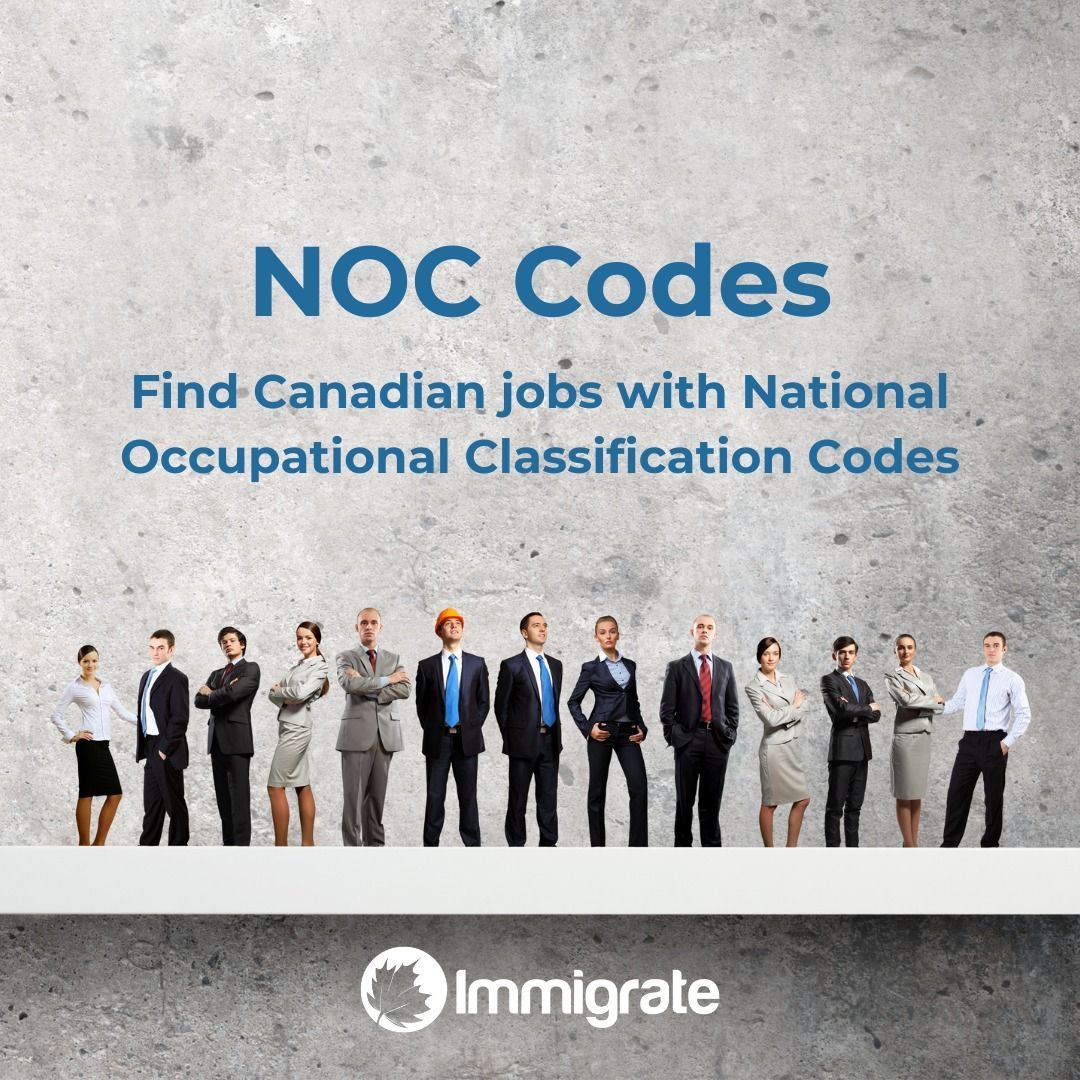Blog

By Miranda Miller
•
02 May, 2024
Canada is making important changes to its Start-Up Visa (SUV) Program to attract innovative entrepreneurs and make it easier for them to start their businesses in Canada. At the same time, these changes may impact anyone planning to apply through the SUV program. Immigration, Refugees and Citizenship Canada (IRCC) recently announced that starting April 30, there will be a yearly limit on the number of permanent residence applications available through the SUV pathway. Each designated organization can only endorse up to 10 start-ups each year. This new cap means that potential applicants must act quickly if they want to take advantage of the opportunity to enter Canada's dynamic business environment. Changes to the Start-Up Visa Program Here are the key changes you need to know if you’re applying for (or considering applying for) a visa through the Start-Up Visa Program. Annual Application Cap: Each designated organization can now only accept 10 or fewer SUV start-ups per year. With fewer than 100 current designated entities, this effectively limits new SUV applications to less than 1,000 for the entire year. ( Source Canada.ca ). Prioritized Processing : Applications from start-ups that have secured committed capital from recognized Canadian investment entities, or from incubators that are part of Canada’s Tech Network, will receive priority processing. This fast-tracks innovative ventures that are ready to hit the ground running and contribute economically ( Source Canada.ca ). Open Work Permit Eligibility : In a change planned for the future, all team members applying for permanent residence through the program will be able to work in Canada while their applications are processed. This will allow entrepreneurs to contribute to the Canadian economy and run their businesses smoothly during this period. ( Source Canada.ca ). Increased Admission Targets : The program still aims to triple the number of admitted entrepreneurs compared to previous years “tripling last year’s target by admitting 3,500 people in 2023 (including SUV and self-employed persons)”, leveraging SUV application backlogs.( Source Canada.ca ). Other Business Immigration Opportunities If your business doesn’t qualify for the Start-Up Visa Program, Canada offers other programs which offer similar great benefits. Provincial Nominee Entrepreneur Programs: For instance, the Saskatchewan Immigrant Nominee Program for Entrepreneurs (SINP-ENT) supports individuals aiming to establish, acquire, or partner in a business in Saskatchewan. It offers a clear route to permanent residence for entrepreneurs committed to long-term development within the province. Other provinces have additional options. ICT Intra-Company Transfer: This program helps multinational companies temporarily transfer key employees, such as managers, executives, or specialized knowledge workers, to support operations in Canada. Owner/Operator Pathway (OO to PR): This pathway is for business owners actively managing a business in Canada. It offers a route to permanent residence based on the economic contributions of their business. Why These Changes Matter The updates to the Start-Up Visa Program are part of Canada’s strategy to attract and keep global entrepreneurial talent. By making it easier for innovative businesses and their founders to establish themselves in Canada, the country not only boosts its economy but also strengthens its position as a top global center for technology and innovation. If you’re looking to enter the Canadian market, now is the time to act. For detailed advice and guidance on these new opportunities, be sure to consult with a licensed legal expert. They can provide valuable insights and help tailored to your specific business needs.

By Miranda Miller
•
30 Apr, 2024
If you're looking for a job in Canada, you might have wondered how you can find a job that really matches your experience. Employers have similar questions - how do I find the perfect applicant for my job posting? For both, it's important to understand something called "NOC codes." In this blog, we'll talk about what they are, why they matter when searching for jobs, and how you can find the right code for your job. What's a NOC Code? NOC codes , short for National Occupational Classification codes, are like job tags used by the Canadian government. They simplify communication between job seekers, employers, and immigration authorities. Each type of job gets a unique four-digit code, making it easier for everyone to understand what the job entails. For International Workers: How NOC Codes Can Help You Find a Job Pinpoint Job Searches: NOC codes help you find jobs that fit your skills and experience exactly. You can use your NOC code as a search term in search engines or on job boards. Smooth Immigration: When applying for immigration, using the correct NOC code makes it easier for officials to understand your work history and qualifications. Your NOC code may influence which immigration route is best for your journey to Canada. Connect with Employers: Employers often use NOC codes to outline job requirements. Knowing your code helps you align your application with what employers are looking for. For Employers: How NOC Codes Can Help You Find the Right Talent LMIA Approval Process: Immigration, Refugees, and Citizenship Canada (IRCC) uses NOC codes to determine whether a position is eligible for hiring international workers, and under which immigration program. Determining Wages and Skill Requirements: Immigration applications may require you to pay wages that match or exceed the federal median wage of the NOC code. Accurate Job Postings: Use NOC codes to communicate specific requirements for a role, making it easier for job seekers to understand if they're a good fit. Simplify Recruitment: When reviewing applications, NOC codes help you quickly identify candidates with the right skills and experience. How to Identify the NOC Code for a Job: Government of Canada’s NOC Lookup: Use the Canadian government's online NOC code lookup tool to identify the code that best matches your job. Self-Assessment Tools: Simple online tools can help both job seekers and employers identify the most suitable NOC code, especially if you’re unsure of the exact job responsibilities. Consulting with Professionals: If you’re not sure which NOC code fits best, seek guidance from immigration consultants or industry professionals to ensure you have the correct code. Understanding NOC codes makes navigating jobs and immigration in Canada easier. By knowing what they are, how they help in job searches, and finding the right code for your job, you set yourself up for success. If you're ready to explore jobs in Canada, start by finding your NOC code. Ready to start your Canadian immigration journey? We're here to help! Create your account now to access expert advice and resources.

By Miranda Miller
•
30 Apr, 2024
Have an upcoming interview with a Canadian employer? Read on to find out how you can be their best candidate. Before the Interview Preparing for your interview is one of the most important steps in the hiring process. A well-prepared candidate shows the employer that they are organized and enthusiastic, and will bring those skills to the workplace. The following tips will help you impress your potential employer! Get set up for the call in advance. For video or phone interviews, be sure all of your technology is working . Prepare the following at least a day ahead of time: Test your internet connection, microphone, camera, and speakers. Conduct a test call with a friend or family member to make sure everything is working. Find a quiet area where you will not be interrupted by outside noise. For video calls, find a place with bright lighting and a simple background, such as a wall near a window in your home. If the employer is calling you on the phone, be sure to provide them with your full phone number in advance, including your country code. Be sure to check your email in the days leading up to your interview. Employers may reach out with questions, scheduling details, or video call links. Make sure you don’t miss any information that can help you to be prepared. Know why this is the right job for you. Be prepared to answer the question, “Why do you want to work for our company?” Employers love to see candidates who are excited to learn and advance their career in Canada. Hiring foreign workers is a big investment for employers. They want to feel confident that the candidate plans to work for them for a long time. Showing that you have researched the company and want to work there specifically will excite the employer. If you plan to seek permanent residency in Canada, be sure to let the employer know. Canada is a big country, and not all jobs are in large cities. You should know whether the location is urban or rural, what the weather is like, and whether French or English is the main language spoken. This will help you decide if the opportunity is right for you and give your employer confidence that you are ready to stay for a while. Show the employer that you have researched these aspects of the job as well. Be ready to discuss examples of your successes in the workplace. Canadian employers often ask candidates to talk about specific examples that prove you can succeed in the job. This is called behavioural interviewing , and it is becoming more and more common. For each responsibility listed in the job description, think of a time when you used the required skills or a time you completed similar tasks. When an interviewer asks you to tell them about a time you solved a problem, communicated with coworkers, or used any other skills required for the job, give your answer in the following format: Summarize the challenge you faced and how it needed to be solved. Tell them about the actions you took to solve the problem. Finish your answer by telling them the result of your solution. During the Interview If you have prepared for your interview in advance, you are all set up to impress your interviewer. Follow the guidelines below to connect with the employer and communicate the answers you have prepared clearly. Arrive on time. Join the video five minutes in advance. Arriving after the agreed upon starting time is considered very unprofessional by Canadian employers, and most expect candidates to be five to ten minutes early. Take your time. Don’t be afraid to pause before answering a question. Taking a moment to think of the best answer shows the employer that you are thoughtful and a good communicator. Avoid speaking too quickly, as it can make it difficult to understand your answers. If you are having trouble understanding the interviewer, you can always ask them to repeat themselves. Ask questions. At the end of the interview, most employers will ask if you have any questions. Having no questions to ask can make the interviewer think that you are not interested in the job. It is best to think of one or two thoughtful and specific questions as you prepare for the interview. This can also help you gain more information to decide whether you would like to accept the job if it is offered to you. Be mindful of cultural differences. International candidates may be surprised to find Canadian employers more casual than employers in their home country. Canadian employers highly value friendliness and enthusiasm as well as professionalism. Applicants can give a good impression by smiling often, making eye contact with the speaker, and showing the employer that they are excited to be interviewing. If an employer introduces themselves by their first name, you can call them by their first name. After the Interview The hardest part is over! After the interview, leave your interviewer with a professional impression. Thank the employer for the opportunity as you finish the interview. If you like, you can also reach out with a short email afterwards, thanking them for their time and mentioning an aspect of the job that excites you. Follow Up If you haven’t heard back from the employer after a week or two, you can send them an email asking whether the role has been filled. Even if you are not selected, always be polite - another opportunity with the employer might come up! Ready to apply for more Canadian jobs? Check out our job board and apply to our many opportunities today!

By Miranda Miller
•
28 Mar, 2024
At Immigrate, our team is passionate about making immigration dreams come true. Today, we're thrilled to introduce Sales Associate Laika Luslos, who exemplifies that attitude. Read on to find out what makes Laika so passionate about making the journey to Canada accessible! Can you please introduce yourself and what you do here at Immigrate? Laika: My name is Laika. I'm from the Philippines, and I hold a Bachelor's Degree in Public Administration and have completed a certificate in a teaching program for secondary education. I'm part of the team here at Immigrate as an immigration Sales Associate. I have a strong passion for music, and I enjoy spending quality time with my family. What is your role like on a day-to-day basis? Laika: My role involves connecting with clients who are interested in immigrating to Canada, understanding their needs and goals, addressing their questions and concerns, and helping them navigate the complexities of immigration procedures. My favorite part is witnessing the excitement and relief on clients' faces when they receive approvals for their immigration applications. It's incredibly rewarding to be part of their journey and help make their aspirations a reality. How do we help clients overcome barriers to starting their new life in Canada? Laika: We offer a wide range of personalized immigration guidance and support, like access to resources, assistance with navigating complex paperwork and legal documents, and help with language barriers or unfamiliarity with the Canadian immigration system. Our team is here to support every step of the way. What makes Immigrate different from other immigration providers? Laika: What sets Immigrate apart is our commitment to providing a high chance of success through personalized recommendations and advice. Our team goes above and beyond to ensure the success of our clients' immigration journey. Plus, having our own unique software platform minimizes the likelihood of mistakes and streamlines the process. What’s a goal you have for the future? Laika: Looking ahead, a future goal of mine is to continue growing within the field of immigration and learning in my role at Immigrate. I'm passionate about helping people achieve their goals and aspirations and I look forward to making a positive impact on even more clients’ lives in the future. And I am really excited about embarking on the journey to fulfill my own Canadian dream alongside my family, combining personal aspirations with professional growth.

By Dirk Propp
•
28 Mar, 2024
This article is written by Immigrate President and Regulated Canadian Immigration Consultant, Dirk Propp (license #R417407). On March 14th, the Saskatchewan Government made changes to the Saskatchewan Immigrant Nominee Program (SINP) Entrepreneur Category, affecting many international entrepreneurs considering starting a business in the province. These new changes affect those in the Expression of Interest Pool for future draws. Many of the applicants already in the pool will need to look for different options, or be able to meet the new criteria. The most important changes are: New minimum language requirement: Applicants must have a CBL 5 in English. Previously no English was required. Mandatory exploratory visits: Visits are required for five calendar days, when applicants should conduct comprehensive research for their proposed business plan. This will mean that applicants will need to obtain a visitor visa to visit Saskatchewan. Extended operation: Applicants must operate the business for a minimum of 12 months on their work permit prior to removing conditions to get a nomination for permanent residence. Business purchases: Applicants cannot buy a business that a previous SINP applicant has started for at least five years after its inception. New ineligible businesses: More business types are not considered for investment. New definition of eligible business investments: This change affects which investments are eligible to meet the minimum investment criteria in the business plan and in operations to remove the conditions and obtain the nomination for permanent residents. Applicant requirements: This restricts applicants to live within 50km of their business, and extends the boundary of major cities to include urban communities. New interview requirements: There is now a mandatory interview which must take place within 90 days of the request by the province. In conclusion, these changes will give international business investors a better chance to build a successful business. For example, the language requirement will help with integration into English-speaking communities and likely a higher chance of success in business operations. These changes will also help rural businesses thrive in Saskatchewan. Secondly, these changes will limit the amount of applications and increase opportunities in certain countries where English is more prominent. The interview gives the officers the discretion to refuse any applicant based on their opinion, which may be frustrating for some applicants. However, it should also give successful applicants a higher chance of success if approved. This change removes Saskatchewan as one of the last provinces to not require English testing to become business immigrants in Canada. If you would like to know more about the changes or get help setting up an exploratory visit, completing your business plan and SINP application, and meeting all other requirements, please contact me directly through sales@immigrate.biz so we can see if this may be the right fit for you and your family to make Saskatchewan your new home.

By Sweet Mirasol
•
21 Feb, 2024
Canada is known for its vibrant economy and diverse job opportunities, attracting individuals from around the world to seek employment in the country. If you're considering working in Canada, one of the essential requirements is obtaining a work permit. In this blog post, we'll guide you through the process of securing a work permit in Canada, from determining your eligibility to submitting your application. Please note: Immigration regulations are subject to change, and we cannot guarantee that this information is up-to-date. For up-to-date information, please visit the Government of Canada's website or speak with a Regulated Canadian Immigration Consultant. Step 1: Determine Your Eligibility Before applying for a work permit, it's crucial to determine which category best suits your situation. Canada offers different types of work permits, including employer-specific work permits, open work permits, and international agreements. Each category has specific requirements, and understanding which one applies to you is the first step towards a successful application. For more information about the different types of work permits, click here . Step 2: Research Job Opportunities Once you've identified the appropriate work permit category, start researching job opportunities in Canada. Explore job boards, industry-specific websites, and professional networks to find potential employers who might be interested in hiring international workers. Networking and connecting with people in your desired field can greatly enhance your chances of receiving a job offer. To see job opportunities on our Job Board, click here . Step 3: Obtain a Job Offer To apply for an employer-specific work permit, you'll need a valid job offer from a Canadian employer. The job offer must meet certain criteria and be supported by the employer's positive Labor Market Impact Assessment (LMIA) , unless an exemption applies. The LMIA ensures that hiring an international worker will not negatively impact Canadian workers' job opportunities. Step 4: Gather Required Documents Preparing the necessary documents is a crucial step in the work permit application process. The specific documents you need will vary depending on your situation, but generally, you will need the following: Valid passport Proof of job offer (employment contract or letter) Educational diplomas and transcripts Language proficiency test results (e.g., IELTS, CELPIP) Proof of financial support Valid travel document or visa (if applicable) Medical examination records (if required) Step 5: Complete the Application With your documents ready, you can proceed to complete the work permit application. The application can be submitted online or through a paper-based process, depending on your country of residence. Follow the instructions provided by Immigration, Refugees, and Citizenship Canada (IRCC) carefully and ensure that all information is accurate and up to date. Step 6: Pay the Fees Work permit applications typically require a processing fee, which must be paid to the Government of Canada when submitting your application. The fee may vary based on the type of work permit and processing times. Payment can be made online using a credit or debit card, as specified by the application instructions. Step 7: Wait for a Decision After submitting your application, you'll need to wait for a decision from the IRCC. The processing times can vary depending on various factors, including the volume of applications and the type of work permit. You can check the status of your application online using the application number provided. Step 8: Arriving in Canada If your work permit application is approved, you will receive a letter of introduction and a work permit. Make sure to review the details on your work permit, such as the start and end date and any specific conditions. Plan your travel to Canada accordingly and carry all necessary documents with you. Ready to turn your dreams of working in Canada into a reality? At immigrate.biz, we specialize in guiding individuals through the process of obtaining a work permit and making a smooth transition to working in Canada. Our team of experts is here to support you every step of the way, from determining your eligibility to submitting your application. Don't miss out on the vibrant economy and diverse job opportunities Canada has to offer. Visit immigrate.biz today and let us help you start your journey to a successful career in Canada.

By Sweet Mirasol
•
21 Feb, 2024
Canada has good chances for people who want to start businesses or have special skills. The government has a program called the Start-Up Visa, which began in 2013. It's a good choice if you want to help Canada grow and make a good impact. In this blog, we'll talk about this program and how it can help people from all around the world become permanent residents in Canada. Please note: Immigration regulations are subject to change, and we cannot guarantee that this information is up-to-date. For up-to-date information, please visit the Government of Canada's website or speak with a Regulated Canadian Immigration Consultant. 1. Advantages of the Start-Up Visa Program a. Pathway to Permanent Residency : Once approved, successful applicants and their immediate family members become eligible for Permanent Residency in Canada. b. Access to Canada's Business Ecosystem: Start-Up Visa holders can tap into Canada's active business world. This means they can get help from experienced people, make business connections, and find resources to help their businesses grow. c. Canadian Citizenship Eligibility : After you've been a permanent resident in Canada for some time and follow the rules, you can ask to become a Canadian citizen. This opens up more opportunities and benefits for you. 2. Understanding the Start-Up Visa Program The Start-Up Visa program wants to bring creative entrepreneurs to Canada who can start and grow their businesses here. Unlike some other visas you need to invest a lot of money, this program checks if your business idea is good. To be eligible, you must get a letter of support from a specific Canadian group, such as an angel investor group , a venture capital fund , or a business incubator . This endorsement serves as a critical factor in the application process. 3. Qualifying Factors To be eligible for the Start-Up Visa program, applicants must meet certain criteria: Have a qualifying business that is innovative, viable, and has the potential for significant growth. Obtain a letter of support from a designated organization confirming the commitment to support the applicant's business. Meet the language requirements in English or French, as per the Canadian Language Benchmark (CLB) level 5. Have sufficient settlement funds to support themselves and their family members in Canada. 4. The Application Process Online Application and Biometrics : Since October 14, 2022, applying online has become mandatory for the Start-Up Visa program. Most applicants now need to provide biometrics (fingerprints and photo) after submitting their application, a crucial step for identity verification. Eligibility and Forms: Applicants must meet specific criteria, including having a qualifying business idea and securing support from a designated Canadian organization. The application involves filling out digital and PDF forms. Use of a Representative: Applicants can seek assistance from an immigration representative, but they must register online their name as a legal rule. Photo Specifications: Each applicant requires a photo, and the online application provides scanning instructions. Paying Application Fees: To process the application, you'll need to pay different fees, including biometrics fees. Temporary Changes to Biometrics: Book biometric appointments early to avoid delays, and temporary measures may assist some applicants. Submitting the Application: Ensure the application is complete and accurate to avoid rejection. For more information on the application process, click here . At Collision 2023 , Minister Fraser announced enhancements to Canada's Tech Talent Strategy. These improvements include: More slots available in 2023. Longer work permits for tech talent. Open permits not tied to specific start-up companies. A focus on applicants who have investor support for the improved Start-Up Visa Program. These changes underscore Canada's commitment to tech innovation and global talent attraction, setting its position as a top tech destination. Canada's Start-Up Visa program offers entrepreneurs and professionals a fantastic chance to settle in a welcoming and economically vibrant country. It features a straightforward application process, emphasizes innovation, and provides a pathway to Permanent Residency. This program is an excellent opportunity for individuals passionate about business and looking to succeed in Canada's diverse and inclusive society. Embrace a brighter future in Canada! Find out how the Start-Up Visa program at immigrate.biz can lead to PR and open doors to success. Apply now and make your mark in Canada!

By Sweet Mirasol
•
21 Feb, 2024
Canada has long been known as a country that is welcoming to immigrants, including temporary foreign workers. In fact, there are many rules designed to make sure temporary foreign workers have a positive experience in Canada. As a temporary foreign worker in Canada, it is important to understand your rights and responsibilities. Knowing what you are entitled to and what is expected of you will help make your time in Canada a success! Please note: Immigration regulations are subject to change, and we cannot guarantee that this information is up-to-date. For up-to-date information, please visit the Government of Canada's website or speak with a Regulated Canadian Immigration Consultant. Rights of Temporary Foreign Workers in Canada Temporary foreign workers are covered by Canadian law, which safeguards the rights of all workers. You have the same protections as Canadians and permanent residents, regardless of your immigration status. As a temporary foreign worker in Canada, you have the right to: Be paid Your employer must pay you for your work as stated in your employment agreement. This includes overtime work if it is included as part of your agreement. They must comply with provincial and federal laws regarding hours of work and overtime pay. A Safe and Healthy Workplace Your employer can not give you tasks that are not safe. Your employer is not allowed to fire you or stop paying you for saying no to an unsafe job. You are allowed to refuse the work until you and the employer agree that there is no more safety problem. Your employer needs to follow safety laws. They must pay for the training and safety equipment you need to be safe. This is very important, especially if you work with chemicals. For more information on reporting unsafe work, click here . Not be discriminated against and a workplace free of abuse You deserve to be treated fairly and with respect at work, no matter what your race, gender, religion, or any other factor. Employers should make sure your workplace is safe and free from any kind of harm, including physical, sexual, mental, or financial harm. Your employer or anyone who works for them should never hurt or punish you for telling them about something that's wrong. If you ever feel afraid, controlled, or alone because of something happening at work, it might be considered abuse. For more information on harassment and violence, click here . Be informed of your employment conditions Employers are required to provide you with a written employment contract that outlines the terms and conditions of your employment on or before the first day of work. It must be in English or French (your chosen official language while in Canada). Both you and your employer must sign this agreement. Rest periods and breaks Taking breaks and resting during work is important to have a healthy and effective workplace. It is the employer's job to give enough breaks and rest time as the law requires. These breaks and rest periods serve to ensure that employees are not overworked and can maintain their physical and mental well-being, leading to increased productivity and job satisfaction. For more information about rest periods and breaks, click here . If you lose your job Employers must provide reasonable notice before laying off employees. If they fail to do so, they must pay termination pay based on the length of employment and location. Those who lose their job through no fault of their own or due to abuse may qualify for Employment Insurance benefits. For information about Employment Insurance visit the EI regular benefits page. Access to healthcare You have the right to access healthcare services in Canada, including medical treatment and emergency services. In the majority of cases, you are not required to pay for medical appointments or hospital treatment in Canada. For more information on Canada’s healthcare, click here . Changing Employers You can change jobs, but your work permit may only let you work for your current employer. If you want to work for a new employer, you may need to apply for a new work permit , and your new employer would need to apply for a new Labour Market Impact Assessment from the Canadian government. This could mean going through the approval process again. For more information on changing jobs or employers, click here . Housing Rights Workers in the Low-Wage and Primary Agriculture streams: If your job is in the Low-Wage LMIA category or in agriculture, your employer should give you a good and affordable place to live. Your employer can require you to pay rent, electricity, and water, but rules typically make this much cheaper than normal rent in Canada. Workers in the Seasonal Agricultural Worker Program: If you're employed through the Seasonal Agricultural Worker Program, your employer must provide you with appropriate housing without charge (except in British Columbia, where they can deduct housing costs from your pay). Your employment agreement should detail all allowable deductions, which vary depending on the province. For individuals from the Caribbean or Mexico , housing and utility expenses should be included in their contracts. For more information on housing rights, click here . Responsibilities as a Temporary Foreign Worker in Canada As a temporary foreign worker in Canada, you also have certain responsibilities. These include: Complying with Canadian laws: You must comply with all Canadian laws, including those related to employment, immigration, and taxation. Reporting to work on time: You are expected to report to work on time and be reliable. Following workplace policies and procedures: You must follow the policies and procedures established by your employer, including those related to safety, attendance, and performance. Respecting Canadian culture and values: You are expected to respect Canadian culture and values, including the rights of others and the laws of the land. Paying taxes: You are required to pay taxes on your income earned in Canada. Leaving Canada at the end of your work permit: You are required to leave Canada when your work permit expires, unless you apply for an extension or apply for permanent residence. If you have a work permit that’s about to expire or that you need to change, you must apply to extend it or change the conditions on it. You should apply to extend your work permit at least 30 days before your current permit expires. If your work permit expires while your application is being processed, find out if you can keep working or consult with a Regulated Canadian Immigration Consultant . As a temporary foreign worker in Canada, it is important to understand your rights and responsibilities. By knowing what is expected of you and what you are entitled to, you can ensure that your experience in Canada is a positive one. If you have any concerns or questions about your rights or responsibilities, there are resources available to help you, including government agencies, community organizations, and legal services. Ready to ensure your experience as a temporary foreign worker in Canada is a positive one? Contact us now to speak with an experienced immigration consultant who can help you navigate your rights and responsibilities.
Verify Status with the College of Immigration and Citizenship Consultants
© 2024
Immigrate Software Inc. All Rights Reserved


